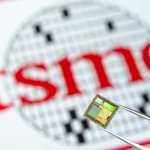Facebook is developing custom chips for its data centers

- After Apple, Amazon, Tesla, and Baidu announced certain aspects of chip development in-house, Facebook, too joins the self-reliance trend.
- Facebook is developing a suite of custom chips for its data centers.
- The customer chips will be able to power machine learning tasks, including the algorithm that handles Facebook’s content recommendations.
- None of the tech giants are looking to do all the chip development themselves at this stage.
Three years ago, way before the pandemic era, Facebook Inc. was building a team to design its own semiconductors. There was already a trend then among technology companies to supply themselves and lower their dependence on chipmakers such as Intel Corp. and Qualcomm Inc. Fast forward today, the social media giant is developing a suite of custom chips for its data center.
Frankly, it won’t be a stretch for Facebook to dip its toes in custom silicon. The company has already dabbled in semi-custom chips. In 2019, for instance, it announced it was working on an application-specific integrated circuit (ASIC) for video transcoding and inference work.
Although Facebook wouldn’t be the first company to look at designing its own chips, a global shortage caused by the pandemic has highlighted the urgency of being self-sufficient.
A small tiny part — that is all that is creating big waves in the tech world, squeezing production and driving up prices for everything from computers to cars.
Semiconductors, the computer chips that make much of our technology “smart,” are in short supply. Apple, Amazon, Facebook, and Tesla are among those “shunning” established semiconductor firms, whilst Intel plans to invest up to US$95 billion in a chip-making facility in Europe.
Chip to power Facebook’s data centers
As first reported by The Information, the social media giant is developing a suite of custom chips for its data centers. One of the processors is reportedly designed to power machine learning tasks, including the algorithm that handles Facebook’s content recommendations, while another would assist in transcoding videos to improve the quality of live-streamed videos.
But reducing its dependence on outside chipmakers isn’t the only reason why Facebook is customizing its own chips. In fact, the move to custom silicon could help the behemoth of a company to lower the carbon footprint of its data centers. The new chips would work alongside the third-party processors the company currently uses in its servers and reportedly aren’t meant to completely replace what it already has.
Experts reckon that tech giants want custom-made chips fitting their applications’ specific requirements rather than use the same generic chips as their competitors. It would, in turn, give them more control over the integration of software and hardware while differentiating them from their competition.
A perfect conundrum for self-sufficiency
Truth be told, ever since the shortage was felt by everyone in the supply chain — from manufacturers to consumers — barely a month goes by without a Big Tech company announcing a new chip project.
The most notable example came in November 2020 when Apple announced it was moving away from Intel’s x86 architecture to make its own M1 processor, which now sits in its new iMacs and iPads.
More recently, Tesla announced that it is building a “Dojo” chip to train artificial intelligence networks in data centers. The automaker in 2019 started producing cars with its custom AI chips that help onboard software make decisions in response to what’s happening on the road.
Not to be outdone, China’s Baidu last month launched an AI chip that’s designed to help devices process huge amounts of data and boost computing power. Baidu said the “Kunlun 2” chip can be used in areas such as autonomous driving — and that it has entered mass production.
Some tech giants, however, are keeping their progress under wraps. Google is reportedly edging closer to rolling out its own CPUs for its Chromebook laptops. The search giant plans to use its CPUs in Chromebooks and tablets that run on the company’s Chrome operating system from around 2023, according to a report by Nikkei Asia on Sep. 1.
On the other hand, Amazon, which operates the world’s largest cloud service, is developing its own networking chip to power hardware switches that move data around networks. If it works, it would reduce Amazon’s reliance on Broadcom.
Notably, at this stage, none of the tech giants are looking to do all the chip development themselves. They are designing and ensuring the performance of their chips because when it comes to manufacturing and foundries, it is way too costly. Setting up an advanced chip factory, or foundry, like TSMC’s in Taiwan, would cost approximately US$10 billion, and take several years to complete.










